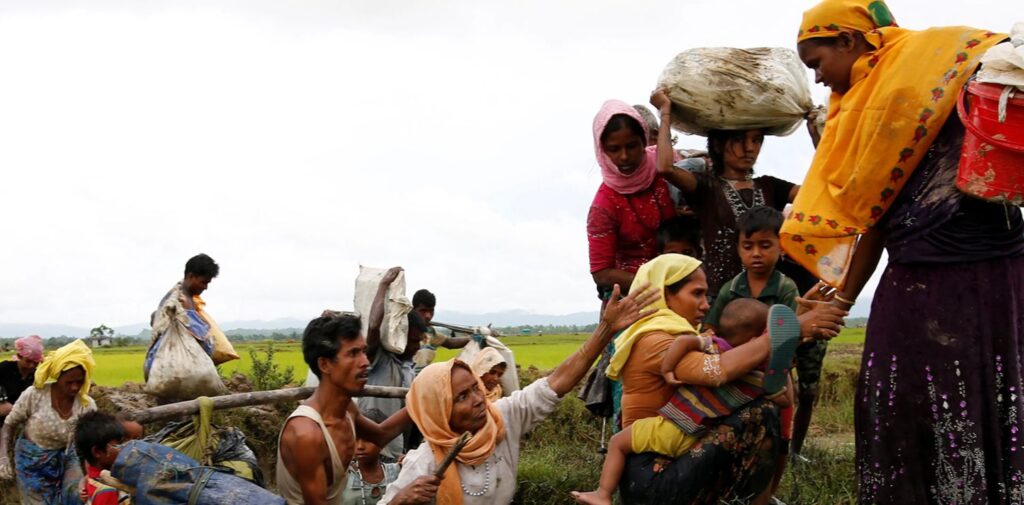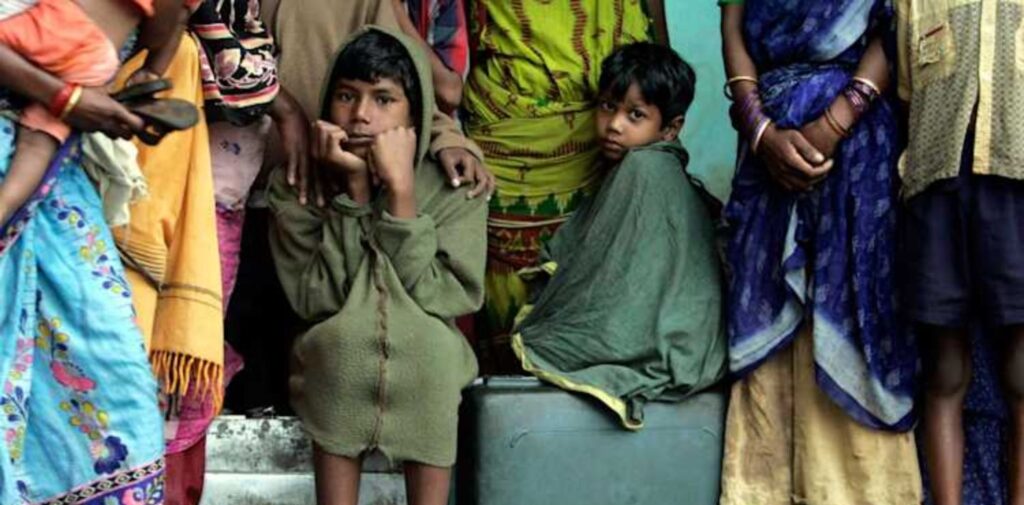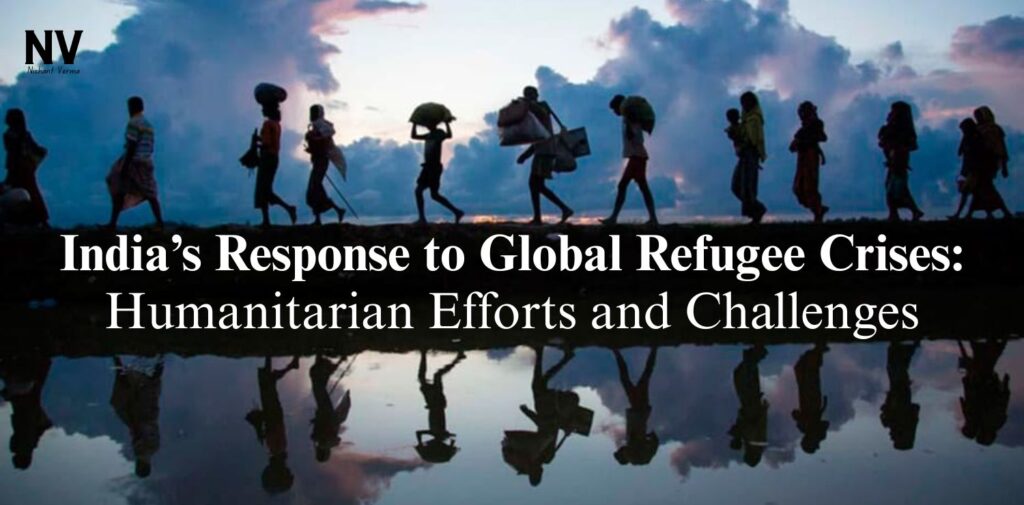India, with its long history of being a refuge for those fleeing violence and persecution, has always been a country that values humanitarianism. Despite being a developing nation with its own socio-economic challenges, India has consistently opened its doors to refugees from different parts of the world. However, the response to the global refugee crisis has not been without its challenges. As the number of displaced people continues to rise globally due to wars, violence, and natural disasters, India’s role in providing refuge and assistance is increasingly important. This article looks at India Response to Global Refugee Crises, its humanitarian efforts, and the challenges it faces in providing support.
Historical Context of India’s Refugee Policy
India has a long history of hosting refugees, dating back to ancient times. The country’s welcoming attitude towards refugees is rooted in its cultural and religious values, which emphasize compassion, hospitality, and helping those in need. Over the centuries, India has provided refuge to numerous groups, including people fleeing from neighboring regions as well as from far-off lands.
One of the earliest and most notable instances of refugee inflow was during the partition of India in 1947, which led to the mass migration of millions of people across borders. Since then, India has played an essential role in sheltering refugees from neighboring countries, including Tibetans, Sri Lankans, Afghans, and Bhutanese, among others.
Unlike many other countries, India is not a signatory to the 1951 Refugee Convention or its 1967 Protocol. However, India’s response to the refugee crisis has been largely shaped by its own humanitarian traditions, national security concerns, and foreign policy objectives.

India’s Humanitarian Efforts Towards Refugees
India’s response to the global refugee crisis has been focused on providing shelter, food, healthcare, and education to those in need. The country’s efforts are evident in its welcoming approach to refugees, despite facing many internal challenges.
- Shelter and Support: India has provided shelter to a large number of refugees, particularly those fleeing from neighboring countries such as Myanmar, Afghanistan, and Bangladesh. The country has set up refugee camps in several regions to offer shelter to these displaced people. In many cases, refugees are granted legal protection and given the opportunity to live and work in India, even though they do not have citizenship. The government also collaborates with international organizations, such as the United Nations High Commissioner for Refugees (UNHCR), to ensure that refugees receive basic needs such as food, water, and sanitation.
- Health Care and Education: India has made significant efforts to provide refugees with access to healthcare services. In refugee camps and settlements, medical care is often provided by both government and non-governmental organizations (NGOs). In addition, refugees are often given access to India’s public healthcare system, which is an important service, especially for those who are vulnerable to diseases in overcrowded camps. Education is another area where India has made strides in supporting refugees. Several refugee children have been enrolled in Indian schools and are provided with free education. Organizations like the Tata Trusts and Pratham have partnered with the government to ensure that refugee children, especially those from conflict zones, receive quality education to improve their future prospects.
- Humanitarian Aid from Civil Society and NGOs: Apart from the government’s efforts, numerous NGOs and civil society organizations play a crucial role in addressing the needs of refugees in India. These organizations provide food, shelter, legal assistance, and mental health support. NGOs like Save the Children, Oxfam India, and Caritas India have been instrumental in providing humanitarian aid to refugees. These organizations also work towards advocating for the rights of refugees, helping them integrate into society and live with dignity. They also ensure that refugees have access to livelihoods, job opportunities, and skills training that can help them build a sustainable future in India.

Challenges Faced by India in Addressing the Refugee Crisis
While India has made significant efforts to address the needs of refugees, there are many challenges that the country faces in dealing with the refugee crisis effectively.
- Lack of a Legal Framework for Refugees: India does not have a specific law governing refugees. While it has a general approach based on humanitarian considerations, the absence of a formal legal framework makes it difficult to provide long-term solutions for refugees. Without clear legal protection, refugees often face discrimination and are vulnerable to exploitation. In some cases, they are unable to work legally or access services like healthcare and education. This lack of a legal framework also makes it difficult to implement policies that would ensure the safe and dignified return of refugees to their home countries.
- Political and Social Challenges: India’s diverse society is home to people of different religious, ethnic, and cultural backgrounds, and this diversity can sometimes create tensions. The arrival of large numbers of refugees from different religious or ethnic backgrounds can sometimes lead to social unrest. For instance, the recent arrival of Rohingya refugees from Myanmar has raised concerns among certain sections of the population, with debates around the impact on local resources, security, and employment. Religious and cultural differences sometimes become a point of contention, as communities may feel threatened by the arrival of refugees who follow different belief systems. This tension has led to political debates and controversies, making it difficult for India to form a unified approach to refugee issues.
- Economic Constraints: India is a developing country, and it faces its own set of socio-economic challenges, including poverty, unemployment, and limited access to basic services. Providing support to refugees in this context can strain the country’s resources, especially in areas where large numbers of refugees are concentrated. Refugees often live in overcrowded camps or urban slums, where access to quality healthcare, education, and employment opportunities is limited. The challenge is to balance the needs of refugees with the needs of the local population. While India has shown remarkable generosity, there is a growing concern about the economic impact of hosting large numbers of refugees, particularly in times of economic crisis.
- Security Concerns: India’s geographical location in South Asia, surrounded by countries that have experienced conflict and political instability, makes it a hotspot for refugees. While India has historically been open to refugees, security concerns sometimes arise, particularly with refugees from conflict zones. There have been instances where the presence of refugees has led to concerns about terrorism, human trafficking, and the potential for radicalization. As a result, the Indian government often faces the delicate task of balancing humanitarian assistance with national security concerns.

India’s Policy Responses and Future Outlook
Despite the challenges, India continues to provide support to refugees through various initiatives. In recent years, the Indian government has increased cooperation with international organizations, NGOs, and civil society to address the refugee crisis. For example, India has played a leading role in the South Asian Association for Regional Cooperation (SAARC) to discuss and promote refugee protection policies within the region.
Looking ahead, India will likely continue to take a humanitarian approach towards refugees while addressing the social, economic, and security challenges that come with hosting displaced populations. Developing a clearer legal framework, improving the capacity of local communities to host refugees, and ensuring better integration of refugees into the workforce will be key to addressing the refugee crisis effectively.
Conclusion: India Response to Global Refugee Crisis
India’s response to the global refugee crisis highlights the country’s long-standing tradition of humanitarianism and compassion. Despite facing challenges related to legal frameworks, social integration, and economic resources, India has played a significant role in providing refuge and support to displaced people from around the world. As the global refugee crisis continues to evolve, India’s approach to humanitarian aid, combined with the efforts of civil society, will be crucial in shaping the future of refugee protection and integration in the country. With continued collaboration and political will, India can serve as a model for other nations in balancing the needs of refugees with the well-being of its citizens.




